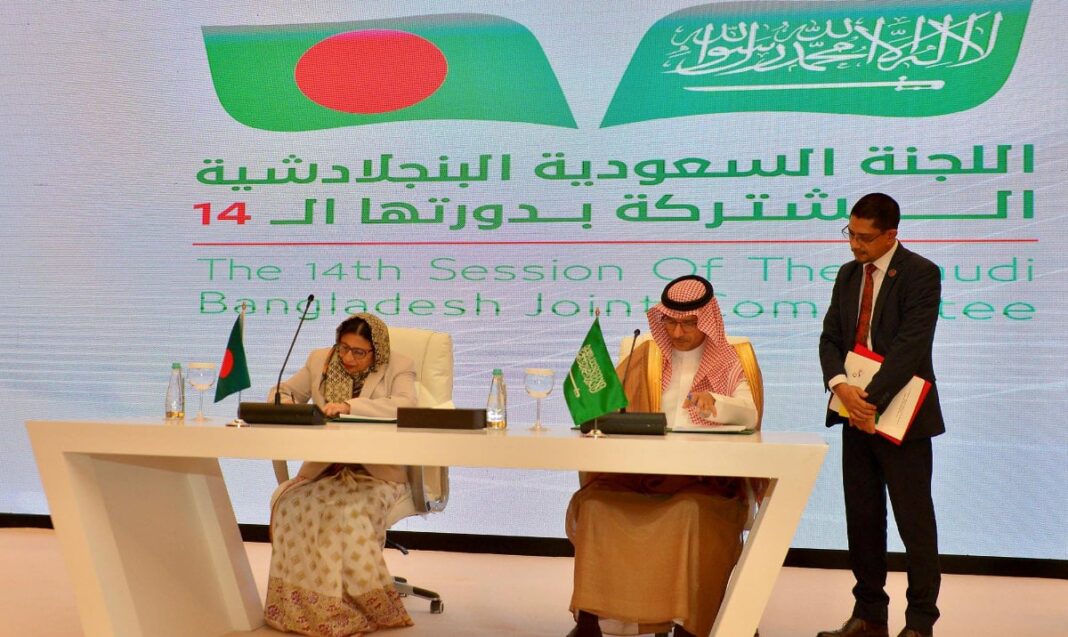DHAKA: Bangladesh is eyeing a new opportunity to send its clinicians to Saudi Arabia, officials said on Wednesday, after an initial agreement was reached during a Bangladesh-Saudi Arabia Joint Commission meeting in Riyadh.
The 14th session of the joint commission took place on Oct. 30-31, focusing on wide-ranging cooperation, including in the fields of energy, security, labor, investment and health.
During the meeting, the two countries agreed to form a business council to increase trade and a task force to enhance energy cooperation. The two sides also signed an expedited memorandum of understanding for the recruitment of Bangladeshi medics.
“We agreed to initiate an executive program to bring Bangladeshi health sector professionals into the Kingdom. Under this program, Bangladeshi doctors, nurses and other health professionals will get the opportunity to work in the Kingdom,” Dr. Mohammad Javed Patwary, Bangladeshi envoy to Riyadh and permanent representative to the Organization of Islamic Cooperation, told Arab News.
“A big development took place on this point,” he added.
“I hope this program will move forward very fast. It’s almost final and I hope the deal will be signed shortly.”
According to Bangladesh Medical Association data, only about 50 Bangladeshi clinicians reside the Kingdom, which otherwise is home to some 2.5 million expat workers from the South Asian country.
The potential to increase that number would not only enhance the Kingdom’s workforce in the health sector, but would also be an investment in the quality of Bangladeshi medics, given the top quality of equipment at Saudi clinics, according to Dr. Ehteshamul Huq Choudhury, the medical association’s secretary general.
“Sending health workers to the Kingdom will create win-win opportunities for both countries. Hospitals in the Kingdom are very well equipped with state-of-the-art technology. When our doctors and nurses work with this equipment, it will obviously increase their skills also,” Choudhury told Arab News.
“Eventually, when they return home with these skills, they will be able to serve the people back home.”
Employment abroad would also help them to retain their profession, as thousands of medical graduates in Bangladesh are now without jobs despite their high education levels.
Bangladesh’s more than 100 medical colleges produce large numbers of certified doctors, and many nursing graduates have completed master’s degrees. But the country’s health infrastructure is unable to accommodate them all.
“At present we have 110,000 registered doctors in the country while there are 123,000 trained nurses. Of them, the government health sector employs 40,000 doctors. The rest are either employed by the private sector or remain unemployed,” Choudhury said.
“As per my knowledge, around 30,000 doctors are currently unemployed,” he added.
“If these health workers remain unemployed for a longer period of time, their knowledge and skills will somehow derail.”
The number of clinicians Bangladesh could send to Saudi Arabia would depend on demand.
“But I think Saudi Arabia is in need of expert doctors, nurses and health technologists. This sort of shortage is seen in many parts of the world now, like in the UK, Australia etc.,” Choudhury said.
“Since we have a huge number of skilled doctors and trained nurses, we can send as many as the Kingdom requires.”




